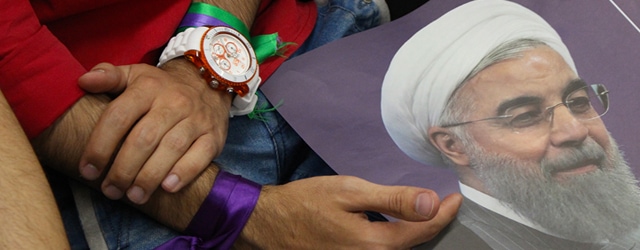
The re-election of moderate Hassan Rouhani for a second term as Iran’s president ends a chapter in Iran’s history, says Mohamad Tavakoli, a professor of History and Near & Middle Eastern Civilizations at the University of Toronto
“It’s a consolidation of moderate sentiment and the official ending of revolutionary radicalism,” he says, adding that the era of radicalism started with the taking of the American embassy in November 1979 and began closing with the nuclear deal in 2015.
Rouhani’s resounding victory over radical conservative cleric Ebrahim Raisi in May redefined the political scene. Moderates like Rouhani are committed to popular sovereignty and individual rights, while revolutionary radicalism was committed to anti-imperialism and more limited rights. Raisi was viewed as representing the oppressive security state.
“This is a popular plebiscite approving the direction that Rouhani has been pursuing,” Tavakoli says. Rouhani’s agenda has included both increased social rights inside Iran and greater integration with the international community; he now has to deliver on his promises of better economic well-being.
Greater integration with the international community will smooth the path for increased foreign direct investment. Although increased FDI by American companies appears doubtful European companies will now view Iran more favorably as an FDI destination, Tavakoli believes. Raisi would not have pursued an agenda that would have furthered Iran’s integration into the international community.
Notwithstanding the positive implications, several challenges confront both regional powers and Western nations. Iran is still engaged in conflicts in Syria, Lebanon and Yemen and allegedly continues its financing of terrorism in the region. Those involvements reflect another agenda, with much of it aimed at Iran’s archrival Saudi Arabia.



